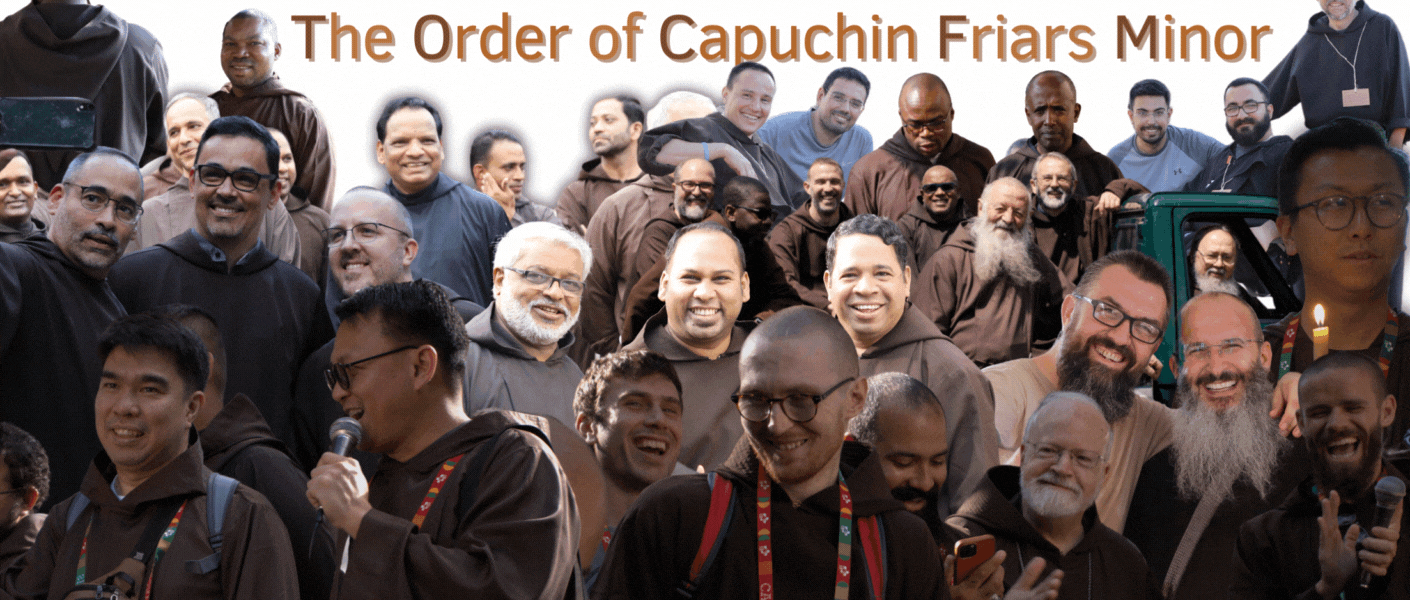Two very distinct approaches to the feast of All Saints
- Published in General Secretariat for Formation
There are two very distinct approaches to the feast of All Saints. One is reflected in today’s Collect: “we joyfully celebrate the merits and the glory of all the Saints.” We understand that the purpose of that approach is to urge us, the living, onward, to encourage us to strive, to give flesh and bone to our faith. There is, however, a problem with this approach.

Two centuries ago, our world experienced a lasting revolution that radically changed the way people think, feel and act – I’m talking of the Industrial Revolution, which planted the seed of secularization. A new species of human being came on the scene: homo economicus, whose priorities were usefulness and profit. Relationships were created and abandoned depending on the perceived usefulness of the other individual or individuals. What emerged was the self-made person, whose success was his own doing. The harder you work, the more benefits you will accrue. And today we’ve reached the point, with the advance of medical science, to where we can even clone life itself. The effects of the self-made man can be seen occasionally even among Christians. If I behave well, I will earn God’s love, God will love me more, and then he will owe me heaven as a reward for my good behavior. God owes me.
Following the Industrial Revolution, as more products were produced by the business world there was a need for quality control. And this at times also entered into our religious imagery. God’s judgment is like quality control. Once the product is finished, it has to undergo a test. Failure meant being utterly thrown away, discarded. People, then, started to be seen as products, either useful or useless. The value of life itself was less appreciated. And when people become nothing more than products in a throwaway culture, the more superficial become their relationships, in families, in society and even in religious life.
Thankfully, recently, Pope Francis reminded us: “God does not love you because you behave well. He loves you, plain and simple. His love is unconditional; it does not depend on you.” We all know that there’s nothing we can do to make God love us less, but some people live their lives as if there were something they could do to make God love them more.
So, what is the alternative to celebrating All Saints without focusing on our merits, our good behavior, boasting of our own glory? In the words of St. Paul, “I gladly boast of my weakness to make perfectly clear Christ’s power at work in me.”
The alternate approach to this feast is to joyfully celebrate the merits of God and to focus on God’s glory. We sometimes speak of our favorite saints as if they were gods, Francis, Clare, Mother Teresa, Padre Pio, or as if they were in competition with each other. We refer to them with superlative adjectives. If Dominic was most chaste, Francis had to be portrayed as extremely poorest. We make them out to be so perfect that we make them inimitable. The saints were no different than any one of us. Each had their own defects of character, personality flaws, and limitations. And those are also meant for our edification!
A great Hasidic mystic, the Baal Shem Tov, told the story of Moses standing before the Burning Bush. God told him to take off his sandals because the spot on which he was standing was holy ground. The moral of the story, we are told, is that God does not call us to be Moses, or Francis, or Mother Teresa, or even Jesus himself. I and I alone, with my unique background, genetics, personality, culture, and defects, occupy this little portion, my own space in time and history. And the little portion on which I stand is holy.
Brothers, the new evangelization, rekindling the flame, whatever phrase you want to invent, consists in sharing the witness of our lived reality – not what we have done, but what God has somehow managed to accomplish with us, earthen vessels.
Dear brothers, when I take a good look at my life, I do not see my merits, my glory, but what I do see very clearly are the promises kept by God. First of all, the promise found in Joshua: “I will stand by you.” In Isaiah: “I will help you through when you’ve done all that you can and cannot cope.” In Revelations: “I will dry your eyes.” In Exodus: “I will fight your fight.” And in Deuteronomy: “I will hold you tight and never let you go.”
Your story could be the key the unlocks someone else’s prison, so don’t be afraid to share it. You may be the answer to someone else’s prayer. In that way, you, too, will be a reflection, in your own way, of God’s goodness. We are not meant to be God’s best kept secret.
By Fra. Patrick McSherry Ofm Cap
Archivist, General Curia, Rome.

